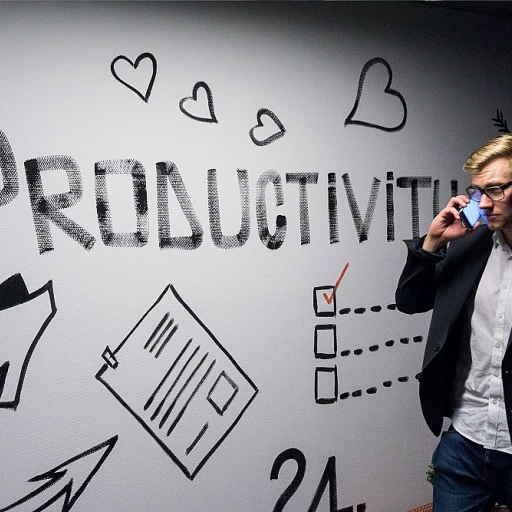
The Changing Landscape of HR Business Partner Roles
Adapting to a New HR Framework
The landscape of HR business partner jobs has transformed significantly with the emergence of artificial intelligence. In days gone by, the role of the human resources business partner concentrated heavily on managing employee relations and acting as a consultant to the management teams. However, current advancements present an array of new opportunities for those in these roles.
Today, leveraging technology allows HR business partners to perform their jobs with increased efficiency. This change not only reshapes traditional job descriptions but also propels career opportunities forward by adding value to the organizational fabric. This transformative process is especially prevalent across the United States, where many companies are integrating AI into their hiring strategies.
With AI tools, HR professionals have the unprecedented ability to analyze large datasets, providing senior managers and directors with insights that can guide business decisions. As a senior business manager or director of human resources, integrating AI means that manual, time-consuming tasks can be automated, allowing more focus on strategic initiatives and employee health and well-being.
While the integration of AI offers many advantages, it is pivotal for HR business partners to remain conscious of potential challenges, including ethical considerations and early applicant biases. This evolution requires a careful balance of technology and human insight to enhance people business functions, ultimately resulting in stronger partner human relationships within organizations.
For those seeking to excel in these roles, understanding how to effectively manage strategies alongside AI tools is imperative. By proactively adapting to these changes, HR professionals can establish themselves as vital contributors within their career paths as a people partner or resources manager.
AI Tools Enhancing HR Business Partner Efficiency
Empowering HR Teams with Favorable Technology
Artificial intelligence is revolutionizing the way HR functions are conducted, offering numerous tools that enhance the efficiency of business partner roles. These technological advances have transformed traditional tasks, allowing more strategic focus and facilitating improved decision-making processes. AI-driven tools have proven invaluable in simplifying the hiring process, making it more accurate and faster. These tools can process vast amounts of applicant data in seconds, helping resources managers identify qualified early applicants swiftly. The incorporation of AI in recruitment extends beyond resume screening, offering insights into cultural fit and predicting employee success. This has greatly improved job satisfaction and reduced turnover. Moreover, HR business partners can utilize AI for advanced analytics in employee health and engagement. By analyzing data patterns from various sources, AI provides human resources departments with actionable insights, helping promote better employee relations. An AI-powered dashboard can reveal trends and potential issues, enabling managers to take proactive measures. AI tools also support HR in the realm of career development. They can identify career opportunities within the organization, helping employees achieve their professional goals while filling senior business partner jobs and director roles. These tools can suggest personalized learning and development paths, making skill enhancement a seamless element of an HR career. AI has also extended its impact to policy adherence and compliance, such as understanding regional regulations. For instance, comprehending the New Jersey sick time law is essential for senior managers and directors in united states-based businesses. By integrating AI, HR departments can ensure policies are accurately adhered to, reducing potential legal challenges. The integration of AI in HR functions presents both opportunities and challenges. While offering substantial efficiency in partner human resources roles, it requires partner business leaders to stay updated on AI trends. Organizations must balance leveraging technology while maintaining the human aspect in their practices.Challenges and Ethical Considerations in AI-Driven HR
Understanding the Ethical Dimensions and Practical Challenges
The integration of artificial intelligence into human resources practices introduces a dual-edged sword. While AI tools are revolutionizing efficiency and accuracy in HR roles, such as enhancing opportunities in employee relations and optimizing resources business processes, a senior business partner must navigate the ethical minefield and address pertinent challenges. Primarily, there's a heightened concern about bias and fairness. AI systems, designed to streamline hiring processes, have been scrutinized for perpetuating biases inherent in the training data. For instance, AI models can unintentionally favor applicants reflecting the demographics of past successful hires, thus necessitating diligent oversight from resources manager teams to ensure equity. Moreover, the transparency of AI decision-making processes raises questions. Employees and applicants are increasingly keen on understanding how decisions influencing their career paths are made, demanding that senior managers and directors maintain clarity in AI-driven conclusions. Ethical AI requires building algorithms that are explainable and fair. Privacy concerns also loom large, given the sensitive nature of data in human resources. There's a critical need for HR business partners to safeguard employee data, ensuring that AI tools conform to privacy regulations. This is especially crucial as these tools become an integral part of managing workforce health information and offering new career opportunities. Furthermore, the dependency on AI poses risks linked to overreliance. Human oversight remains indispensable, and HR teams in the United States and beyond must continuously evaluate whether AI’s input aligns with human-centric organizational strategies. A constant dialogue between senior directors and AI system developers is essential to manage expectations and refine the scope of AI applications within human resources. Navigating these challenges will require HR business partners to stay informed and agile. As strategies evolve, resources will need precise alignment with ethical guidelines to maintain trust and drive positive outcomes for both businesses and the people they serve. For more, the AIHR Institute's resource on AI voice technology's ethical considerations provides valuable insights into the broad ramifications of AI ethics in HR applications.Skills Required for HR Business Partners in an AI-Driven World
Key Competencies for Modern HR Business Partners
In today's rapidly evolving business environment, the role of HR Business Partners (HRBPs) is undergoing significant transformation. The integration of artificial intelligence (AI) has created new demands and shifted the focus towards specific skills that are now crucial for success. Here's a look at some of the essential skills required for HRBPs to thrive in an AI-driven world:- Data Literacy: As AI tools become more prevalent, HRBPs need to become skilled in data analysis and interpretation. Understanding how to utilize data resources effectively to enhance business outcomes is critical. This competency enables HR professionals to make informed decisions, align with senior management strategies, and ensure a seamless employee experience.
- Change Management: The intersection of AI and HR requires HRBPs to be adept at managing organizational change. As AI continues to influence hiring practices and employee engagement, HR professionals must facilitate a smooth transition and maintain positive employee relations. This ability is especially relevant in roles like senior manager and director positions within human resources.
- Emotional Intelligence: While AI presents tremendous opportunities, the human aspect of HR remains irreplaceable. HRBPs must foster strong interpersonal relationships to support health and well-being among employees. Partner human resources need to balance technological advancements with the empathetic touch that only humans can provide.
- Strategic Thinking: In the age of AI, HRBPs must shift from an administrative role to become strategic business partners. This evolution requires a deep understanding of business dynamics, enabling HR professionals to align HR initiatives with overarching corporate goals. Those in careers within HR departments, from early applicant to senior director, will find strategic thinking indispensable.
- Technical Acumen: Familiarity with AI tools and platforms is becoming increasingly important. Understanding how these technologies function can greatly enhance an HRBP's ability to implement solutions that improve talent management processes. Remaining updated with technological trends is advantageous for those looking to advance their jobs in human resources.
Case Studies: Successful AI Integration in HR Functions
Real-World Implementations of AI in HR Business Partnering
The practical application of artificial intelligence in human resources has already begun to reshape the role of HR business partners. As organizations prioritize efficiency and productivity, AI tools are becoming indispensable. Several companies have integrated AI into their HR operations with notably positive results. Here, we explore a few successful examples that demonstrate the potential of AI in transforming human resources.- Recruitment and Talent Acquisition: Companies in the United States are progressively leveraging AI to streamline their hiring processes. By using AI-driven tools, senior managers can quickly analyze vast pools of early applicants, filtering and identifying potential career opportunities for candidates.
- Employee Relations and Engagement: In major cities like New York, resources manager roles have transitioned from manual employee engagement activities to more strategic initiatives. AI aids these efforts by providing real-time analytics on employee health and satisfaction, enabling HR to address issues before they escalate.
- Training and Development: Large organizations have shifted to AI-powered learning platforms that adapt to individual employee needs. Training programs now consider the unique senior business needs, ensuring that every employee, from a new job applicant to a senior director, receives personalized career development resources.
Future Trends in AI and HR Business Partner Roles
Anticipating the Shifts in HR Business Partner Dynamics
The role of HR business partners is continuously evolving, especially with the rapid integration of artificial intelligence in human resources. As AI technologies become more sophisticated, they are expected to transform how HR business partners operate, offering new career opportunities and challenges alike. In the coming days, the focus will likely shift towards more strategic involvement in business operations, allowing HR professionals to act as senior advisors and strategic partners to senior managers and directors.
Embracing AI for Enhanced Employee Relations
One of the significant trends anticipated in the near future is the use of AI to enhance employee relations. AI tools can analyze employee data to identify potential issues before they escalate, enabling HR business partners to proactively address concerns. This proactive approach not only improves employee health and satisfaction but also enhances the overall efficiency of human resources management.
AI-Driven Hiring and Recruitment Innovations
The integration of AI in hiring processes is set to revolutionize recruitment strategies. With AI, HR business partners can streamline the applicant screening process, making it easier to identify early applicants who are the best fit for specific roles. This efficiency is crucial in competitive markets such as the United States, where the demand for skilled employees is high. AI tools will enable HR professionals to make data-driven decisions, improving the quality of hires and reducing time-to-fill for open positions.
Preparing for AI-Enhanced Career Opportunities
As AI becomes more prevalent in HR functions, the skills required for HR business partners will also evolve. Professionals in this field will need to develop a strong understanding of AI technologies and their applications in human resources. This knowledge will be essential for navigating the new landscape and capitalizing on the opportunities AI presents. Senior business partners and HR managers who embrace these changes will be better positioned to lead their organizations into the future.
Looking Ahead: The Future of HR Business Partner Roles
In conclusion, the future of HR business partner roles in an AI-driven world is promising yet challenging. As AI continues to reshape the HR landscape, professionals in this field must adapt to new technologies and approaches. By doing so, they can ensure they remain valuable assets to their organizations, driving business success and fostering a positive work environment for employees.













